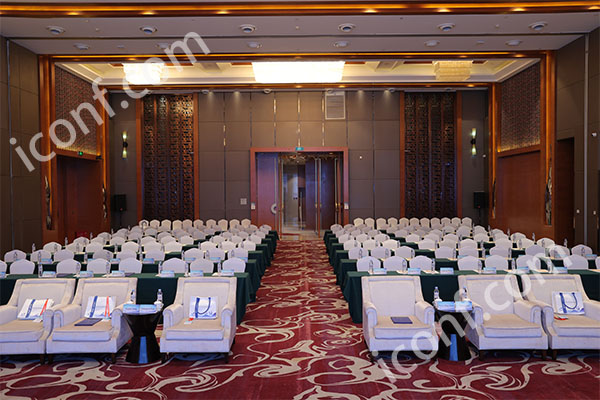

428 views||Release time: Dec 23, 2024
Presenting research at an academic conference is an excellent opportunity to showcase your work to a broader audience, receive feedback from experts, and network with other researchers. However, making an impact requires more than just presenting data. Successful research presentations are clear, engaging, and memorable.
In this guide, we will explore how to effectively present your research, from preparing your content to delivering it with confidence. Whether you're giving a talk or presenting a poster, these tips will help you leave a lasting impression at your next academic conference.

The first step in preparing your presentation is to identify the key message you want to convey. What are the most important takeaways from your research? Focus on these points to ensure clarity and impact.
A clear structure will help you stay on track and keep your audience engaged. A typical research presentation structure includes:
Academic conferences attract a wide range of participants, from experts to students. Tailor your content to the knowledge level of your audience. Avoid jargon and overly technical language if presenting to a general audience, but provide enough depth for specialists.
Your slides should support your presentation, not overwhelm it. Keep slides simple and visually engaging, with one key point per slide.
Data visualization is a powerful way to communicate complex information. Use graphs, tables, and diagrams to make your results easier to understand.
Choose a professional and consistent slide template. Use contrasting colors for readability and ensure that fonts are large enough to be seen from a distance.
Most academic conference presentations have strict time limits, so it's essential to rehearse your talk and ensure it fits within the allotted time. Aim to finish a few minutes early to allow for questions.
Speak clearly and at a moderate pace. Avoid rushing through your slides, as this can confuse your audience. Practice pausing after important points to let them sink in.
Engage with your audience by making eye contact. This helps to create a connection and keeps attendees focused on your presentation.
Before the conference, think about potential questions that might arise based on your research. Prepare clear, concise answers to these questions.
During the Q&A session, stay calm if faced with difficult or unexpected questions. If you don’t know the answer, it’s okay to admit it and suggest possible directions for further research.
The feedback you receive during the Q&A can be invaluable for refining your research. Listen carefully to comments and suggestions, and view them as opportunities for growth.
A poster presentation is more visual than a verbal one, so focus on creating a visually appealing and easy-to-read display. Include only the essential information: research question, methodology, results, and conclusion.
During poster sessions, stand near your poster and be ready to explain your research in a concise and engaging manner. Keep your explanation short but informative, and be prepared to answer questions on the spot.
Offer handouts or flyers with a summary of your research and contact information. This allows interested attendees to follow up with you after the conference.
Many conferences offer networking sessions, social hours, or informal meetups. Use these opportunities to discuss your research with fellow attendees and expand your professional network.
Prepare a 30-second summary of your research that you can deliver at networking events. This pitch should briefly outline your topic, methodology, and findings.
Presenting your research at an academic conference is an exciting opportunity to showcase your work and engage with experts in your field. By planning your content, designing effective visuals, rehearsing your delivery, and preparing for the Q&A, you can make a lasting impression on your audience. Whether presenting a paper or poster, these tips will help you communicate your findings confidently and professionally.
For more conference-related resources, tips, and tools, visit iconf.com to streamline your conference preparation.